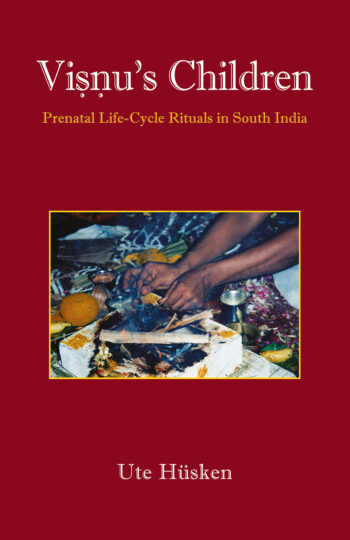Visnu’s Children: Prenatal Life-Cycle Rituals in South India
About the Book
The Vaikhānasas, a group of Brahman priests serving in South Indian Viṣṇu temples, can look back on a long and history, at times marked by the effort to assert their status against a rival priestly group. The focus of this monograph is a centuries-old controversy about what entitles a person to perform the rituals in Viṣṇu temples: Does birth or initiation establish the ideal mediator between God and humans? Since the 14th century CE, discussions in the relevant Sanskrit texts have revolved around the question of whether Vaikhānasa priests must undergo initiation with branding on their upper arms, or whether their special prenatal life cycle ritual, Viṣṇubali, entitles them to perform temple rituals. As hereditary temple priests, the Vaikhānasas’ position is unequivocal: they see themselves as Viṣṇu’s children, destined for temple service even before birth. In addition to the textual perspectives, three local conflicts from the 19th and 20th centuries are analyzed regarding the question of whether Vaikhānasas must undergo initiation. Furthermore, three examples of current performances of the Viṣṇubali ritual are presented and interpreted in light of the relationship between text and performance.
- Author: Ute Hüsken
- Publisher: Dev Publishers
- Year: 2025
- Dimension: 23.5 x 15.5 x 2 cm
- No. of Pages: 322
- ISBN: 9789359444703
- Binding: Hardcover
- Price: ₹ 1995
About the Author
Ute Hüsken is Professor of Cultural and Religious History of South Asia (Classical Indology) at the South Asia Institute of Heidelberg University. Her research focuses on Buddhism, Hinduism, ritual and festival studies, and gender studies. She is head of a long-term project on Kanchipuram’s temple legends (māhātmya/talapurāṇam).


